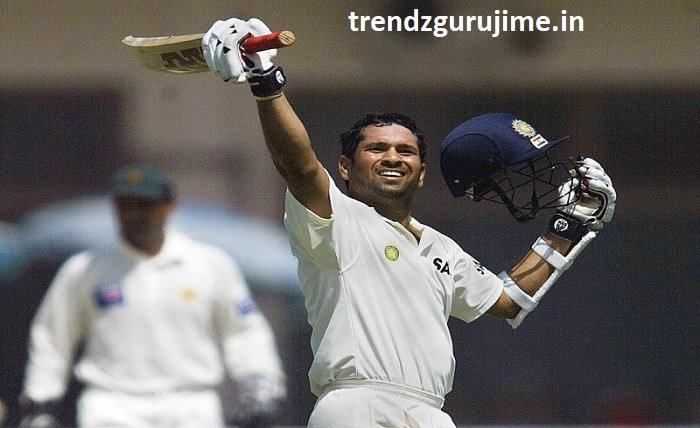Cricket is one of the oldest and most beloved sports in the world, with a rich history spanning centuries. Over the years, many legendary players have contributed to its evolution, but the title “Father of Cricket” is often attributed to one man who profoundly shaped the game’s development: William Gilbert Grace, commonly known as W.G. Grace. In this blog, we will explore why W.G. Grace is considered the Father of Cricket, his contributions to the sport, and how his legacy continues to influence cricket today.
1. The Father of Cricket
W.G. Grace is widely regarded as the Father of Cricket due to his unparalleled influence on the game during the 19th century. Born in 1848, Grace revolutionized the sport with his exceptional skills, innovative techniques, and deep understanding of cricket’s strategic aspects. His ability to dominate the field, both as a batsman and bowler, earned him a place in the annals of cricket history. But more than just his on-field brilliance, Grace’s contributions off the field helped shape cricket into the professional sport we know today.
2. Early Life of W.G. Grace
Born in Downend, near Bristol, England, W.G. Grace came from a family that loved cricket. His father, Henry Grace, was a doctor and a cricket enthusiast, which greatly influenced young Grace’s love for the game. W.G. Grace’s early exposure to cricket set the foundation for his illustrious career. He began playing competitive cricket at a young age, and it soon became clear that he possessed exceptional talent. His early experiences on local pitches helped shape his later success and his role as the Father of Cricket.
3. Grace’s Impact on Batting
W.G. Grace is considered the Father of Cricket largely due to his groundbreaking contributions to batting. Before Grace, batting was a more passive aspect of the game. He transformed the way batsmen approached the game, emphasizing aggressive strokes and the importance of scoring runs quickly. Grace’s technique revolutionized the art of batting, blending defense and offense in a way that set the standard for future generations. His batting records, including more than 54,000 first-class runs, stand as a testament to his influence on the sport.
4. Contributions to Bowling
Though primarily known for his batting prowess, W.G. Grace was also a formidable bowler. His unique bowling style, which combined spin and swing, confounded many of the best batsmen of his time. Grace’s all-round abilities were key in making cricket a more balanced sport, where both batting and bowling were equally valued. As the Father of Cricket, his contributions to bowling demonstrated his complete mastery of the game and his ability to impact every aspect of cricket.
5. Influence on Modern Cricket Rules
The Father of Cricket, W.G. Grace, played a significant role in shaping many of the modern cricket rules. His deep understanding of the game allowed him to influence changes that made cricket more structured and professional. Grace’s advocacy for fair play, sportsmanship, and professionalism helped establish the ethical framework that governs the sport today. His push for standardizing cricket rules contributed to making the game more accessible and popular, not just in England, but globally.
6. The Birth of Professionalism in Cricket
Before W.G. Grace, cricket was largely an amateur sport. However, Grace’s success as a cricketer coincided with the professionalization of the game. He became one of the first cricketers to be paid for his performances, and his celebrity status helped bring financial viability to cricket. The Father of Cricket also played a key role in popularizing county cricket, which laid the groundwork for professional cricket leagues around the world. Grace’s career marked the shift from cricket as a pastime to cricket as a professional sport.
7. W.G. Grace’s Legacy in England and Beyond
Grace’s influence extended far beyond the cricket grounds of England. His fame spread internationally, helping cricket gain a foothold in countries like Australia, South Africa, and India. The Father of Cricket participated in early international tours, which helped solidify cricket’s place as a global sport. His larger-than-life persona and immense talent helped inspire generations of cricketers worldwide, cementing his legacy as a global ambassador for the sport.
Get the complete player stats from the thrilling Carolina Panthers vs Philadelphia Eagles match! From jaw-dropping touchdowns to key defensive stops, we cover every major highlight. Dive deep into individual performances, quarterback ratings, rushing yards, receiving leaders, and defensive plays that shaped the game. Whether you missed the action or want a detailed recap, this guide provides a full breakdown of the match stats. Stay updated on how your favorite players performed and see who made the biggest impact. Don’t miss this comprehensive look at the Panthers vs Eagles clash!
8. Memorable Matches of W.G. Grace
W.G. Grace’s career is filled with memorable matches and milestones that showcase why he is considered the Father of Cricket. One such match was his 344-run innings for Gloucestershire in 1876, which broke all records at the time. Another notable performance was his 170 runs for England against Australia, which helped cement his status as a cricketing legend. These remarkable feats demonstrated Grace’s ability to perform under pressure and solidified his place in cricket history.
9. How W.G. Grace Changed Public Perception of Cricket
Before W.G. Grace, cricket was primarily seen as a leisurely activity for the upper classes. Grace’s success and popularity helped change the public’s perception of cricket, making it a sport for all. The Father of Cricket played a crucial role in making cricket accessible to the masses, bringing the sport into the public eye, and fostering a broader fan base. His popularity also helped raise the profile of cricket in newspapers and other media, increasing its appeal across different social classes.
10. The Lasting Influence of W.G. Grace on Modern Cricket
Even decades after he died in 1915, the influence of W.G. Grace can still be felt in modern cricket. Many of the techniques and strategies he pioneered are still used by today’s cricketers. The professional structures and leagues that exist in modern cricket owe much to Grace’s vision of cricket as a sport that could be both professional and entertaining. The Father of Cricket left a lasting legacy that continues to shape the way cricket is played, enjoyed, and revered around the world.
Conclusion
W.G. Grace’s unparalleled contributions to cricket earned him the title of the Father of Cricket. His influence on both the technical aspects of the game, such as batting and bowling, and the broader evolution of cricket into a professional sport, is undeniable. Grace revolutionized cricket, transforming it from an amateur pastime to a global phenomenon. His legacy lives on in the rules, professionalism, and global popularity of the game. As we look at modern cricket, it’s impossible to ignore the foundational role that W.G. Grace played in shaping the sport as we know it today.
FAQ
Q1: Why is W.G. Grace called the Father of Cricket?
A1: W.G. Grace is called the Father of Cricket because of his pioneering influence on the game’s development, his innovative techniques, and his role in popularizing cricket as a professional sport.
Q2: What were W.G. Grace’s major contributions to cricket?
A2: Grace’s major contributions include revolutionizing batting, improving bowling techniques, helping shape modern cricket rules, and professionalizing the sport.
Q3: Did W.G. Grace influence the international spread of cricket?
A3: Yes, W.G. Grace was instrumental in popularizing cricket internationally, particularly through early international tours and his global influence on the sport.
Q4: What records did W.G. Grace set during his career?
A4: W.G. Grace set numerous records, including over 54,000 first-class runs and hundreds of centuries. He also played in memorable matches that showcased his all-around abilities.
Q5: How did W.G. Grace contribute to the professionalization of cricket?
A5: Grace played a key role in the professionalization of cricket by becoming one of the first players to earn money from the sport, helping establish county cricket leagues, and raising the profile of the game through his fame.





